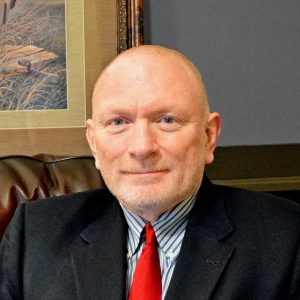
Surviving the Dark Cave - A Framework for Seeing and Being with People Through the Crucibles of Emptiness, Trauma, and Addictions
Presenter: Adrian Hickmon, PhD
Details:
This pre-Summit workshop is a 2.5-hour presentation with a 10-minute break at the 1-hour and 15-minute mark. 2.5 hours of continuing education credits have been applied for.
To attend this session, choose the appropriate ticket price on the registration page.
Presentation summary:
Addictions, self-destructive coping behaviors, most often begin as solutions to previously unsolvable problems of distress. Solutions that almost work. Felitti (2003) says, “Addiction is primarily a consequence of adverse childhood experiences… best viewed as …the compulsive use of… [mood-altering behaviors] in response to abnormal prior life experiences [ongoing effects of old trauma], most of which are concealed by shame, secrecy, & social taboo. Hunter (2018) states, ‘“mental illness” generally is, in fact, a unique constellation of understandable and adaptive reactions to overwhelming and unbearable experiences.” This presentation provides a conceptual framework that helps people make sense of struggle, de-pathologizes survival efforts, and guides the healing process in a way that makes their suffering count.
Learning objectives:
- Participants will be able to describe the presentation’s metaphors and utilize them to help clients make sense of their struggle and shift their toxic shame to resiliency.
- After this presentation, participants will be able to construct a story timeline with clients that answers the question, “What makes this make sense?”
- Participants will be able to discuss the three core systems’ conceptual framework and give meaning to suffering and de-pathologizes survival attempts that became self-destructive.
References:
- Felitti, V. J., (2003). The origins of addiction: Evidence from the adverse childhood experiences study. Dept. of Preventive Medicine, Kaiser Permanente Medical Care Program, San Diego, California.
- Frances, A. (2013). Saving Normal: An Insider’s Revolt Against out-of-Control Psychiatric Diagnosis, DSM-5, Big Pharma, and the Medicalization of Ordinary Life. New York, Harper Collins.
- Hunter, N. (2018). Trauma and Madness in Mental Health Services. New York, Palgrave Macmillan.
- Mate, G., (2010). In the Realm of Hungry Ghosts: Close Encounters with Addiction. North Atlantic Books.
- Van der Kolk, B., (2014). The Body Keeps the Score: Brain, Mind and Body in The Healing of Trauma. New York, Penguin.
Adrian Hickmon, PhD
CURRENT POSITION
- Founder, Clinical Architect - Capstone Treatment Center- AR, 2001-present
EDUCATION
- Ph.D. Marriage and Family Therapy, 1993, Virginia Tech, Blacksburg, VA
- M.A. Substance Abuse Counseling, 1991, NE Louisiana University, Monroe, LA
- M.Ed. 1979 Harding College, Searcy, AR.
- B.A. Physical Education, 1977, Harding College, Searcy, AR.
LICENSURES
- LMFT (# M9710034) - Licensed Marriage and Family Therapist, Arkansas
- LPC (# P9307011) - Licensed Professional Counselor, Arkansas
- LADAC (# 3821) - Licensed Alcohol and Drug Abuse Counselor
CERTIFICATIONS
- CSAT-S - Certified Sexual Addiction Therapist – Supervisor
- CMAT-S - Certified Multiple Addictions Therapist
- CTT - Certified Trauma Therapist
- AAMFT Clinical Member
PROFESSIONAL ORGANIZATIONS
- American Association of Christian Counselors
- International Institute of Trauma and Addiction Professionals
- American Association for Marriage and Family Therapy
